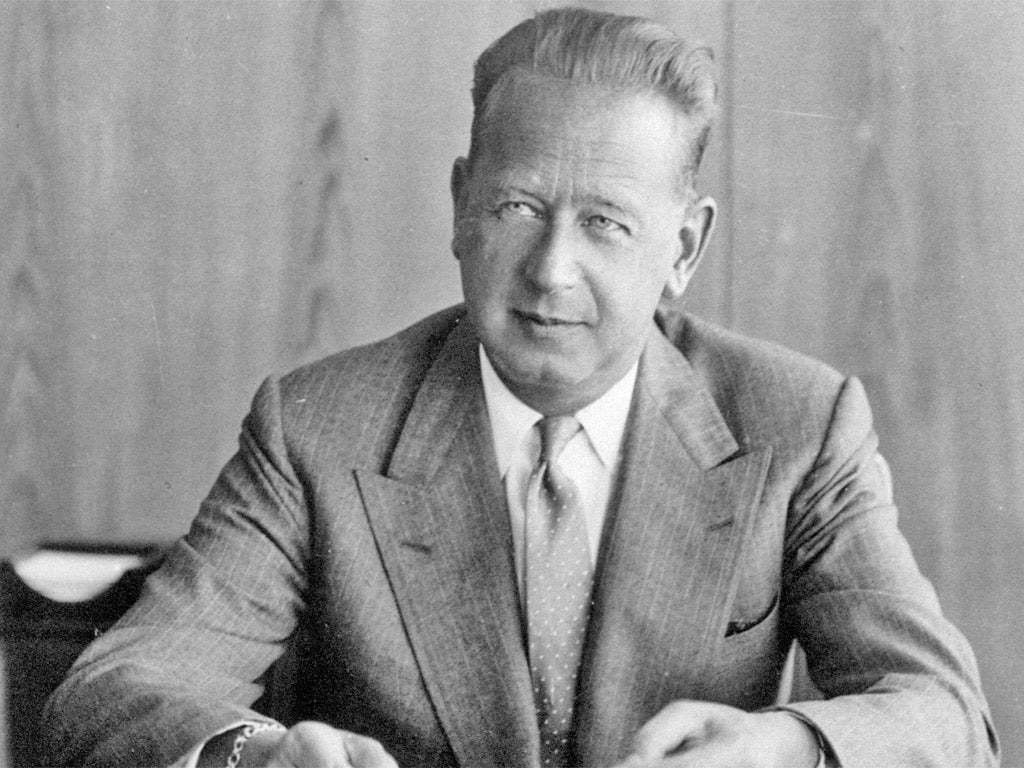Diary: Legal experts hoping to solve a 50-year-old mystery

Your support helps us to tell the story
From reproductive rights to climate change to Big Tech, The Independent is on the ground when the story is developing. Whether it's investigating the financials of Elon Musk's pro-Trump PAC or producing our latest documentary, 'The A Word', which shines a light on the American women fighting for reproductive rights, we know how important it is to parse out the facts from the messaging.
At such a critical moment in US history, we need reporters on the ground. Your donation allows us to keep sending journalists to speak to both sides of the story.
The Independent is trusted by Americans across the entire political spectrum. And unlike many other quality news outlets, we choose not to lock Americans out of our reporting and analysis with paywalls. We believe quality journalism should be available to everyone, paid for by those who can afford it.
Your support makes all the difference.More than 50 years have passed since the mysterious aircraft crash which killed Dag Hammarskjold, a Swedish diplomat who some think was the best secretary general the United Nations ever had. He was fearless in his criticism of the great powers of the day, including the UK. When Katanga, a mineral-rich province of the Congo, declared independence from the government of Patrice Lumumba in July 1960, Hammarskjold suspected collusion by Western mining interests and was flying there to broker a peace deal on 18 September 1961, when the aircraft came down near the Katanga border. Eight months earlier, Lumumba had been kidnapped and taken to Katanga to be tortured and killed, evidence that it did not do to mess with Katanga's mining interests.
The cause of that crash has never been satisfactorily established but even after so many years, a commission of jurists – a panel of legal experts – has been set up in the hope of finding out. It is chaired by Sir Stephen Sedley, a retired Lord Justice of Appeal. "The whole of the truth, in significant respects, has yet to be told," the Labour peer, David Lea, who helped set up the commission, said yesterday.
Wealthy prove to have sensitive eardrums
Having previously blamed "health and safety" for the sudden end of Bruce Springsteen's live gig with Paul McCartney at the weekend, the promoters, Live Nation, now have a new explanation. The problem was the sensitive eardrums of wealthy and influential people living nearby, chief operating officer Paul Latham has told Classic Rock magazine. He added: "The residents of Park Lane and Mayfair may not be numerous, but they wield inordinate power over the Gogs and Magogs of Parliament."
A name from the shadows
Those who have heard of Jeremy Thorpe, one of the most dazzlingly talented and self-destructive politicians of the past 50 years, may be surprised to know that he is still alive, though he has been ill for years. He led the Liberals when Edward Heath and Harold Wilson led Britain's two main parties. In his memoirs, Thorpe had nothing much to say about the alleged homosexual affair with the model Norman Scott, and the bizarre allegation that he attempted to have Scott murdered, which destroyed his career. He was acquitted of the charge at trial. The 83-year-old was mentioned in the Western Morning News this week because his three bedroom 16th-century thatched cottage has gone on the market for an asking price of £625,000.
Attack dog goes on the defence
It is often said that those who dish it out should know how to take it, but this does not seem to be a maxim close to the heart of Andrew Gilligan, one of the most famous attack-dog journalists in the land. After leaving the BBC and moving back into print journalism, he waged a relentless campaign, in the Evening Standard and later in the Daily Telegraph, to prevent Ken Livingstone being re-elected as Mayor of London.
On page 642 of Livingstone's memoirs You Can't Say That, Gilligan came upon a reference to himself, alleging that he had been "shown the door" by the Standard, and that editorials since published in the paper said "there had been no corruption or cronyism at City Hall".
Gilligan interpreted this as saying that he had been sacked and that his award-winning exposés repudiated, and called for m'learned friends. Livingstone's publishers, Faber & Faber, denied that the words were intended to have that meaning, but agreed to pay unspecified damages. An apology was read out in court yesterday. "Being lied about by liars is an occupational hazard of my job, but anyone tempted to follow Livingstone's example should be in no doubt that I will defend my reputation and journalism.
"As for Ken, he has today learned that there are indeed some things you can't say," Gilligan triumphantly declared.
Join our commenting forum
Join thought-provoking conversations, follow other Independent readers and see their replies
Comments